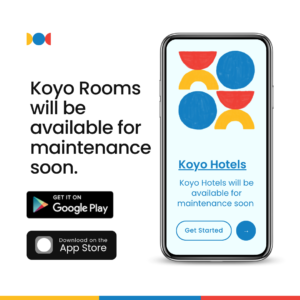
Koyo Business Model
KOYO Rooms: Revolutionizing the Hospitality Industry
In recent years, KOYO Rooms has emerged as a game-changer in the hospitality industry, redefining the concept of budget accommodation. Founded in 2013 by Ritesh Agarwal, this Indian hospitality chain has expanded globally, offering affordable and standardized stays to travelers across various destinations. KOYO’s business model has been instrumental in its rapid growth and success.
Understanding KOYO’s Business Model
KOYO’s business model is built on the principle of providing standardized and affordable accommodations through a mix of technology and operational efficiency. Here’s a closer look at the key components of KOYO’s business model:
Aggregator Model
KOYO operates on an aggregator model, partnering with independent hotels, guesthouses, and homeowners to bring them under its brand umbrella. By onboarding these properties, KOYO expands its inventory rapidly without having to invest in the construction or ownership of properties. This model allows KOYO to offer a wide range of accommodations to its customers at various price points.
Standardization and Quality Assurance
One of the distinctive features of KOYO’s business model is its emphasis on standardization. KOYO ensures that the properties listed on its platform adhere to certain quality standards. This includes providing basic amenities, clean linens, and well-maintained rooms. Through the utilization of technology and regular audits, KOYO maintains quality across its network of properties, thereby enhancing customer satisfaction.
Technology Integration
KOYO leverages technology to streamline operations and enhance customer experience. The KOYO mobile app and website serve as platforms for booking accommodations, making the process convenient and accessible to a wide customer base. Additionally, KOYO’s technology infrastructure enables efficient property management, inventory allocation, and pricing strategies, optimizing the overall business operations.
Dynamic Pricing
KOYO implements dynamic pricing strategies, adjusting room rates based on factors such as demand, seasonality, and other market dynamics. This approach allows KOYO to maximize occupancy and revenue for its partner properties while offering competitive prices to customers.
Customer-Centric Approach
KOYO places significant emphasis on understanding and addressing customer needs. By collecting and analyzing customer feedback, KOYO continuously improves its services and the overall guest experience. This customer-centric approach has contributed to building brand loyalty and positive word-of-mouth for the company.
Impact and Future Prospects
KOYO’s innovative business model has significantly disrupted the traditional hospitality landscape. The company’s rapid expansion and ability to cater to diverse customer segments have positioned it as a formidable player in the industry. Moreover, KOYO’s foray into newer segments such as vacation rentals and long-term stays reflects its adaptability and vision for sustained growth.
As KOYO continues to evolve and expand its global footprint, it remains a compelling case study for businesses seeking to leverage technology and innovation to drive growth and customer satisfaction in the competitive hospitality sector.
In conclusion, KOYO Rooms’ business model, characterized by its aggregator approach, emphasis on quality, technological integration, dynamic pricing, and customer-centric focus, has propelled the company to the forefront of the hospitality industry. With its commitment to innovation and customer satisfaction, KOYO exemplifies the transformative potential of modern business models in meeting the evolving needs of travelers worldwide.










Good